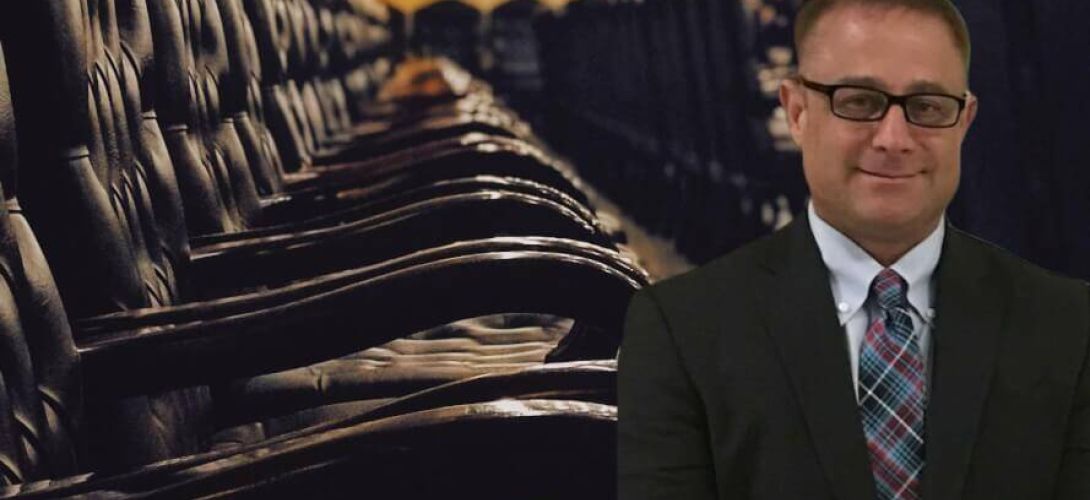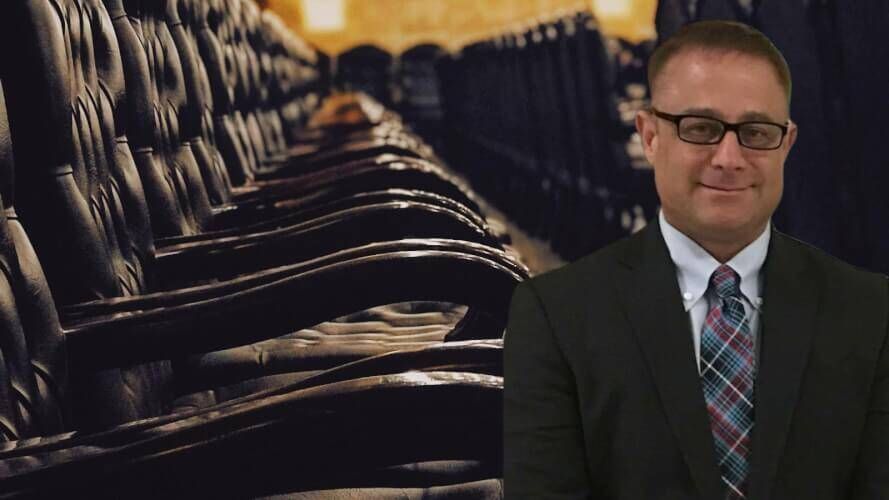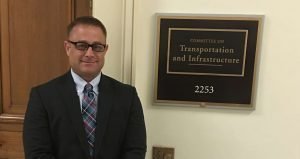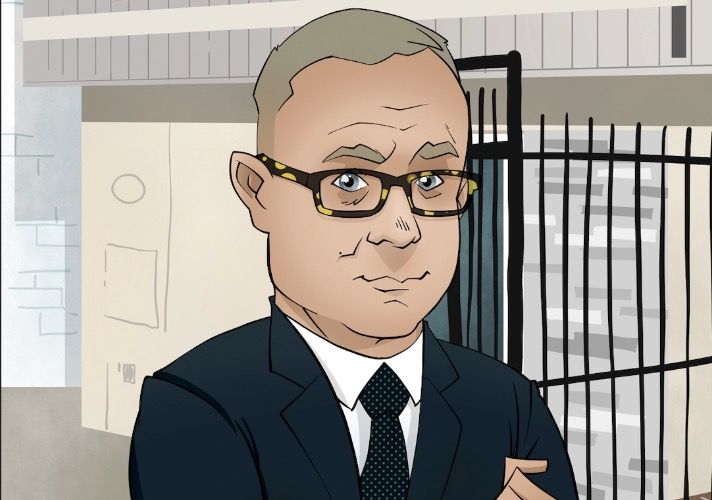
Is Jury Nullification Kosher in a Personal Injury Case?

Is Jury Nullification Kosher in a Personal Injury Case?

Understanding the Law of Nullification
First, this post is not legal advice at the outset. I am not trying to teach people how to get out of jury duty or stay on a jury; I am merely pointing out my opinions and conclusions. But for one, I do believe it’s kosher for a jury to determine the law and the facts ultimately.
But I also think a court’s job is vital. However, its role is merely guiding the arbiters of justice (the jury.) But my opinions should in no way guide you in your decision to understand the law and mean to keep it well.
So What is Jury Nullification?
This definition is a great question and a great place to start. Why? Because this terminology can mean many things to many people, it must be more thoroughly understood. So, it encompasses many items, as will be explained.
In a nutshell, jury nullification is defined as a juror’s right and duty to ignore or not enforce what it considers an unjust law. But it also deals with a juror’s role in finding a court’s misapplication of a just law. Some have called this a juror’s “pardoning power.”
It is typically used in criminal matters. For example, jury nullification may happen when a jury is convinced beyond a reasonable doubt of a defendant’s guilt in a criminal case. But still, the jury votes to acquit them of the charges anyways, despite the evidence. (Recent examples may include the O.J. Simpson criminal case.)
But then again, under this procedure, the jury could try and vote to convict a person even though it’s not sure of guilt or innocence. But at least in that last example, if the evidence fails to support a conviction, judges may still direct a verdict of acquittal.
Can a Jury Nullify a Personal Injury Case?
Perhaps. But let’s compare and contrast a bit. In a criminal case, if a jury returns an acquittal, then generally, it’s game over. The Court nor the prosecutor is allowed to appeal a criminal acquittal.
Question: What about personal injury matters? Can a jury nullify a civil case also?
Answer: It appears that jury nullification may also occur in personal injury law questions.
For example, the verdict is “generally a finding of liability or lack of accountability (rather than a finding of guilty or not guilty).” (See Lars Noah, “Civil Jury Nullification,” Iowa Law Review 86 (2001): 1601.). Many examples exist of jury nullification in both civil and criminal matters.
Furthermore, the Seventh Amendment protects and recognizes the pre-existing Natural rights of the Jury.
“…the right of trial by jury shall be preserved, and no fact tried by a jury, shall be otherwise re-examined in any Court of the United States, then according to the rules of the common law.”
It appears well-settled that jury nullification is a right and even a duty. After all, a juror must be the “conscience of the community.” (Source.)
Why Nullify in a Personal Injury Case?
First, it is easy to foresee why a juror would want to nullify a bad law in a civil or criminal case. A personal injury case is unique because a jury could hate the defendant and the plaintiff. A nullifying jury could use all strategies to derail the economic recovery. But the jury could still simultaneously dislike the defendant. Get it?
What Major Reasons Why Nullification Can Become a Duty In A Civil or Criminal Matter?
After the German Race laws were passed, Nazis targeted Jews with jail and wealth confiscation. Look at how the German Jews had their private property confiscated in pre-World War II Germany.
Antisemitism and the persecution of Jews represented a central tenet of Nazi ideology. In their 25-point Party Program, published in 1920, Nazi party members publicly declared their intention to segregate Jews from “Aryan” society and to abrogate Jews’ political, legal, and civil rights. (Source).
Had I been a juror, I would not have convicted a Jew who had failed to yield their property or civil rights to the state. Would you have done so?
What if criminal law was passed called the “White Privilege Law” that whites had to give up their property to pay reparations to the descendants of enslaved Africans? Would you convict a white person for refusing to turn over their property?
Laws are often passed that discriminate against or help people, for example. Politically driven excuses are used to suppose how people gained their fortunes. Then a law is passed to tax them higher or lower depending on party affiliation. The masses quickly may erode the rights of the gifted individual.
Personal injury lawyers have received favor in the tax code, for example. Hollywood has received exemptions from California’s gun laws. So film studios can even use and own fully automatic weapons. But ordinary citizens may not.
And it makes sense. After all, trial lawyers are enormous D.C. lobbyists. The studios also control the news and what is seen and heard thereon. But so is the insurance lobby and so forth. So all sides seem to benefit based upon who donates to who’s re-election bid.
Is there A Fundamental Unfairness To Plaintiffs In Personal Injury Cases?
Some argue that insurance companies get a pass from the courts and legislature in personal injury cases. The jury instructions make clear that no one can mention insurance or how much coverage is at issue.
So we all know that California law requires us to carry mandatory minimum liability insurance. But we are not allowed to consider whether or not there is insurance coverage in a motor vehicle accident case.
So if a defendant appears to be poor, a jury could be swayed into finding against the plaintiff. Or, for example, they could award the aggrieved party peanuts. How is this fair? It’s great for the insurance company and shareholders.
But it can kill the plaintiff’s case. So, for example, if I were on a jury, I would demand to know how much insurance coverage is at issue. Sure, you don’t want to place the defendant in the poor house, but you also want to award the plaintiff for pain, suffering, and particular and general damages. You want to do justice.
I, for one, would want to do my independent investigation if the Court refused to disclose the existence or nonexistence of the insurance policy in question. So what does this have to do with nullification? Well, it doesn’t. Jury nullification does not give the juror a right to violate his oath under penalty of perjury. What does this mean to you?
First, you have to level with the Court before being sworn in. Can you not agree to a thing that goes against your conscience?
Jury Nullification May Not Be Used if a Juror Has Sworn an Oath Not to Use it?
-
Can I be Punished for Nullifying a Verdict?
The only example I could find that allowed a judge or prosecutor to take vengeance on a juror potentially is the Laura Kriho matter. In that case, Kriho was the sole juror refusing to convict based upon the interests of justice. It was a drug-related case called People v. Brannon. The situation was in Colorado. Juror Kriho was eventually charged with three counts of contempt of Court.
A whistle-blowing fellow juror on the panel sent a secret communication to the Gilpin County District Court Trial Judge, Kenneth Barnhill. Said communication alleged that Kriho complained about the unfair potential jail time of the accused while deliberating. So the sell-out juror asked the Court to bring in an alternate juror. Since the Court had previously dismissed the alternates, the Court called for a mistrial instead.
But the trial court was not done with Kriho. Not even close. So apparently, a message had to be sent to the jury pool.
What Were The Contempt Charges in Kriho?
Kriho was eventually prosecuted for:
- Not volunteering information never sought during voir dire (e.g., that Kriho silently reserved her right to nullify an unjust law),
- Telling fellow jurors that her knowledge that potential punishment meant a conviction was likely wrongful, and
- Attempting to convince other jurors to cancel a charge that carried a criminal sentence against the defendant.
Many courts use this case to convince jurors they may only decide matters of fact. But an educated jurist who knows the situation would know that the second and third charges were ultimately withdrawn. In other words, the Court did not rule on nullification! And there was no punishment, either.
The Remaining Sole Charge Was Reversed on Appeal in Kriho
Amazingly, Kriho was convicted for failing to volunteer info, EVEN THOUGH SHE WAS NEVER ASKED to do so. (Clearly, that jury followed the law as stated by the Court.). That sole conviction on that remaining count against Kriho was reversed in 1999 on appeal! The appeals court rightly thought it absurd that a jury must read minds and volunteer info.
Accordingly, FIJA reported:
“You have to go back to [the trial of William Penn in] 1670 to find a case in which the judge tried to punish jurors for returning a verdict he didn’t like.“
Since the Kriho case, I can find just one point in which a juror faced a severe possibility of being punished for her verdict—the 2005 prosecution of juror Carol Asher.
In Asher, unlike Kriho, there was a split jury. Hence, there was a mistrial, as in Kriho. So the jury foreman ratted to the judge about Asher’s comments during deliberations. Also, unlike Kriho, three other jurors believed the defendant was not guilty. But only Asher alone was punished for felony perjury.
In that case, Asher was at risk for a 14-year prison term for “lying.” But Asher never made it to trial. Instead, an evidentiary hearing was held in 2006. And there, the entire case went away. Asher learned the same lesson as Kriho.
Standing up for your rights means legal expenses and being placed in jeopardy of prison. This truth is the clear message these two jurors received.
The Kleinman Case.
Next, we have the Kleinman case. The criminally accused was the defendant. Now in Kleinman, a trial court told a jury it would violate the law if it ignored the trial court’s interpretation of the law. But the left-leaning 9th Circuit even agreed this went too far, stating:
“The court’s statement that the jury ‘would violate [its] oath and the law if [it] willfully brought a verdict contrary to the law given to [it] in this case,’ may imply punishment for nullification, because ‘violate your oath and the law,’ coming from the court in a criminal trial, could be understood as warning of a possible violation with associated sanctions. Additionally, the statement that ‘[t]here is no such thing as valid jury nullification’ could reasonably be understood as telling jurors that they do not have the power to nullify, and so it would be a useless exercise. Judges tell juries: follow the law. But the statement there is no valid jury nullification misstates the role of nullification. This is because an acquittal is valid, even if it resulted from nullification.” [Emphasis.]
But this was an irrelevant, harmless error to misadvise a jury regarding their rights. As expected, the 9th rejected Kleinman’s argument that the erroneous jury instruction required reversal of his conviction.
See the BELOW ERRONEOUS Jury INSTRUCTION
“It is not fundamentally unfair for a defendant to be tried by a jury that is not fully informed of the power to nullify,” the court said, “or even that is stripped of the power to nullify, because there is no right to nullification. Although a jury should not be led to believe that jury nullification will result in punishment or an invalid acquittal, the court’s misstatement by implication does not rise to the level of denial of Kleinman’s due process rights.”
Wow. Did you see that? The courts are saying, yes, we have a right to nullify. But a trial court can issue a false statement of law to a jury that nullification is illegal, and this will not require a reversal of a conviction. We are all presumed to know the law.
What If I Want to Remain on a Jury and Exercise the Right of Jury Nullification?
For example, automatic exclusion can occur if you are a member of the ACLU, Libertarian Party, or any number of marijuana rights organizations. So, for the measure, an NRA member may get tossed in a gun possession case.
And here would be an example of a wrongful death personal injury case. An anti-gun jury may decide, even though it was self-defense, that defendant must still pay for merely owning a gun.
Must I Volunteer I Support Jury Nullification?
It depends. If you are an officer of the Court who has written many treatises and articles supporting this right, it will make sense that you do not withhold this fact from the Court. Don’t fail to volunteer information, lol.
In the same way, a citizen who has touched on these issues online or on social sites may also not want to withhold this information. Often, jurors are subject to investigation by all sides and the Court.
Yes, respond to the questions in a yes, no, I don’t know type of way. Less is more. The Court has many people to interview. Move along. So long as you have no religious views or philosophy preventing you from doing justice, you should be okay to serve. If you agree that everyone deserves a fair trial regardless of the law, you should be ok to fit the panel.
Also, are you capable of convicting even if you disagree with a bad law? Yes, you can be capable of that. But courts consider each separately. After this, it makes sense to silence your opinions on nullification.
But What About Promises Under Oath?
Making a promise under oath means you must keep it. But what if you are forced to swear an oath to ONLY judge the facts? What if that juror claims to let the Court decipher the law? If a juror says he “can” uphold a law he disagrees with, he is not lying. But if he promises only to judge the facts when he intends to be the judge of both, he could be a perjurer.
Did I Swear Not To Exercise My Right Not To Decide Issues of Law?
If you got on a Los Angeles jury, you may or may not have surrendered your right to be the community’s conscience when you swore to allow the Court to be the sole decider of the law. And nullifying unconscionable laws could expose you to prosecution.
It is not because they exercised their rights per se. It is because they swore an oath not to use their freedom. Is that crazy, or what? As mentioned above, failure to use jury nullification was the International Court’s basis for convicting accused Nazis of war crimes after WWII.
The Court reasoned that civilians and soldiers must ignore, interpret, and fight against an unjust law. Hence, despite swearing, an oath, low and high-level soldiers could not argue they were “following orders“ when they killed innocent civilians and prisoners of war, etc.
What Other Examples of Why You Would Use Nullification in a Personal Injury Case?
- Medical Malpractice (Read more.).
- Comparative Negligence Issues (Jurors may or may not apportion fault, for example. Or they may apportion more significant blame if they think it unjust a plaintiff gets too much money.).
- Reserved. So many times, nullification could be appropriate; I invite you to comment below.
What Are Some Other Examples of Just Use of Jury Nullification?
- Statutory Rape Laws (An underaged female sexually assaults an adult male, and he faces rape charges = unjust to apply the law (See, e.g., State v. Morse 281 Minn. 378, 161 N.W. 2d 699, (1968).).
- Gun Laws (A man in California arrested for having a cartridge magazine in his pistol with more than ten rounds in the magazine = unjust as a magazine is a primary component of a firearm. And the number of games in a magazine directly affects a citizen’s ability to defend home and heart.).
- Race Laws (Fredrick Douglas and other white abolitionists were fierce supporters of jury nullification and an armed citizenry.).
- Euthanasia Laws (Where a terminally ill patient wanted a mercy killing, prosecutors have no choice but to bring charges against the doctor.)
- Marijuana Laws.
- Prohibition Laws.
What are Some More Famous Jury Nullification Examples and Explanations?
In “flagrant” cases, according to the Court, “the jury has always exercised the pardoning power, notwithstanding the law, which is their actual prerogative.“ (Local 36 of Int’ l Fishermen & Allied Workers of America v. United States, 177 F.2d 320 (9th Cor. 1949).) Lysander Spooner, author of Trial by Jury 1852, pointed out that “governments cannot decide the law or exercise authority over jurors (the People) for such would be absolute government, absolute despotism.”
But in conclusion, the jury has to know the law and the means to keep it well. The rights you fail to claim become waived.
And falling into the trap of swearing not to exercise the right places a juror at risk not for exercising right, but instead, the juror is at risk for perjury. Solutions are to avoid poisoning the other jurors. It appears that it is unwise to tip off fellow jurors as to their rights.
Do Not Surrender Oaths
So the smart move is to request a sidebar, approach when directed, and instruct the Court that you plan to exercise the right to decide the law and the facts as justice dictates. But what if a judge asks: “You’ll follow the law as I instruct it, right?” What if you feel intimidated?
Well, you are merely informing the Court that you cannot take an oath to surrender a right as you know it.
An intelligent judge may present a hypothetical and ask if you would follow the law under that example. I would say that it offers an incomplete hypothetical and would preserve my right to decide the law and the facts as I see fit.
The bottom line is that all free men and women remain the right to decide the law and the facts in personal injury and criminal matters. Our public servants are no more intelligent than any of us. Many of them are too bright for their excellence.
You, the citizen, are the last line in defense of freedom. Use our online website contact form or telephone us today for a free consultation about any personal injury claim or procedural issue you face, including jury nullification laws, risks, and liberties.
Categories
- A to Z Personal Injury Podcast
- Auto Accident Blog
- Brain Injury Blog
- Burn Injury Blog
- Civil Rights Blog
- Death Law Blog
- Dog Bite Blog
- Elder Nursing Abuse Blog
- Government Tort Blog
- Insurance Law Blog
- Piloting and Aviation Accident Blog
- Premises Liability Blog
- Products Defect Blog
- Recreation-Sports Accident Blog
- Reports
- Sea Admiralty Maritime Accidents
- Service Related Cancer Blog
- Sexual Assault Blog
- Spinal Cord Injury Blog
- Torts, Examples, Explanations
- Train Accidents Blog
- TV, Media & Firm News
- Uncategorized
Firm Archive
Main Los Angeles Location


Michael Ehline
Michael Ehline is an inactive U.S. Marine and world-famous legal historian. Michael helped draft the Cruise Ship Safety Act and has won some of U.S. history’s largest motorcycle accident settlements. Together with his legal team, Michael and the Ehline Law Firm collect damages on behalf of clients. We pride ourselves on being available to answer your most pressing and difficult questions 24/7. We are proud sponsors of the Paul Ehline Memorial Motorcycle Ride and a Service Disabled Veteran Operated Business. (SDVOB.) We are ready to fight.
